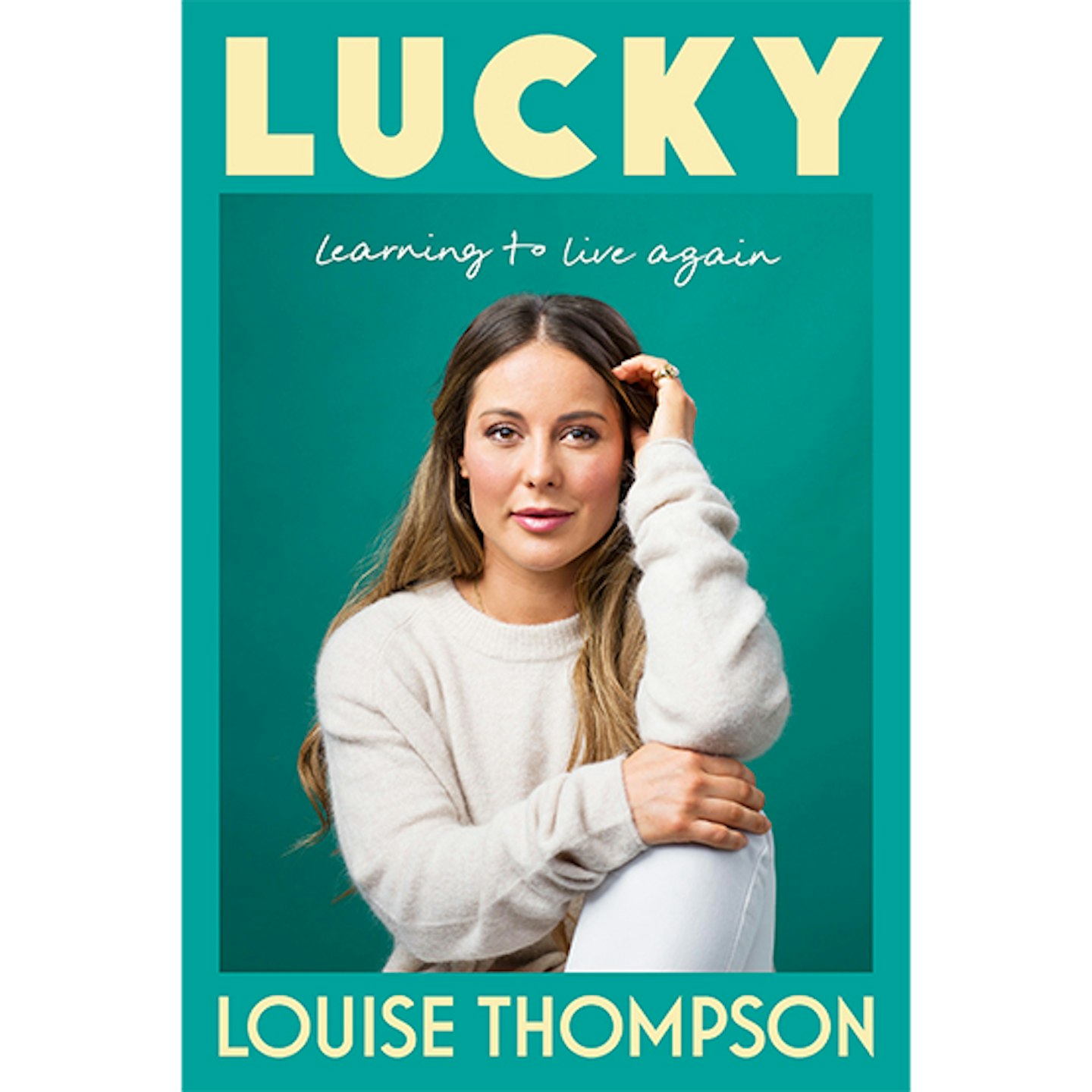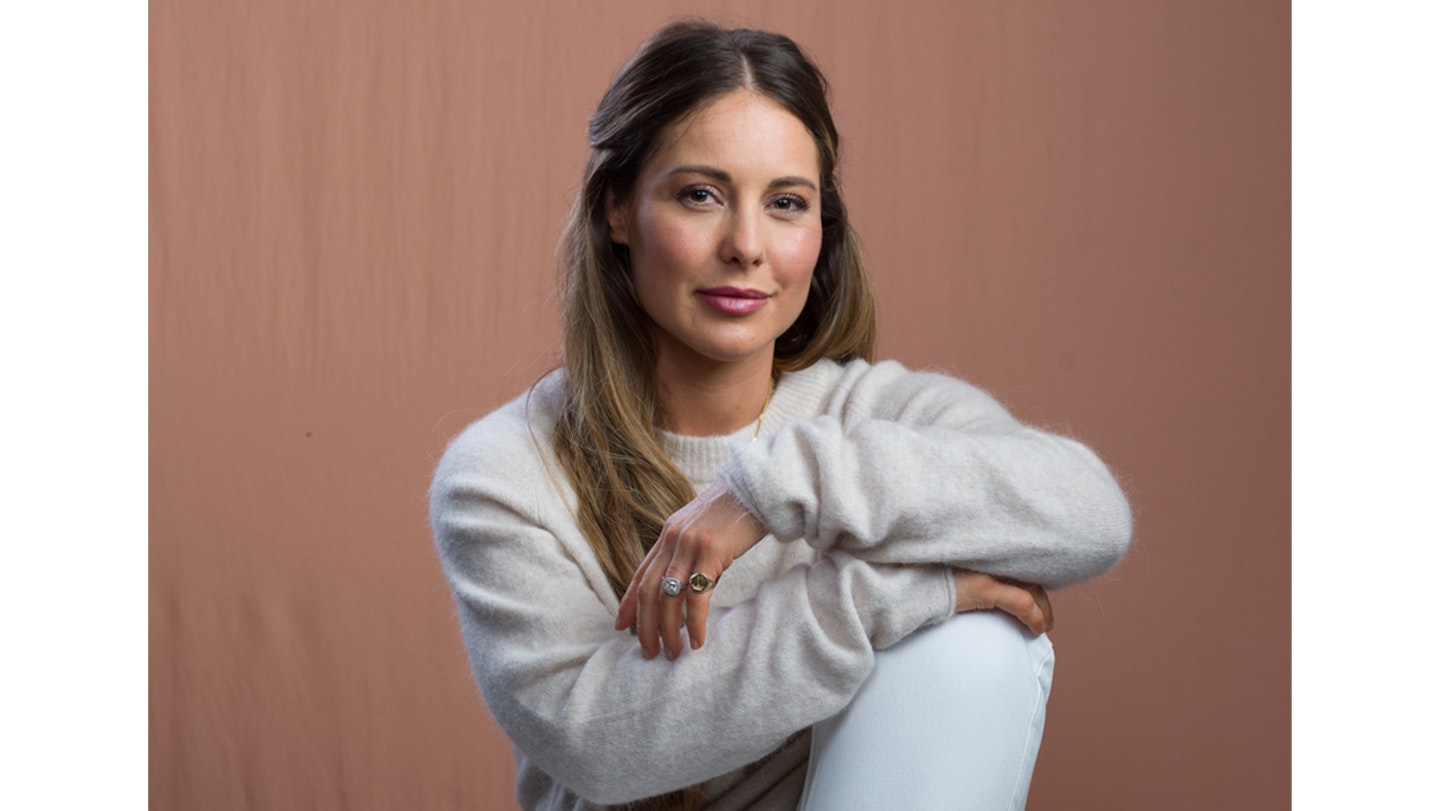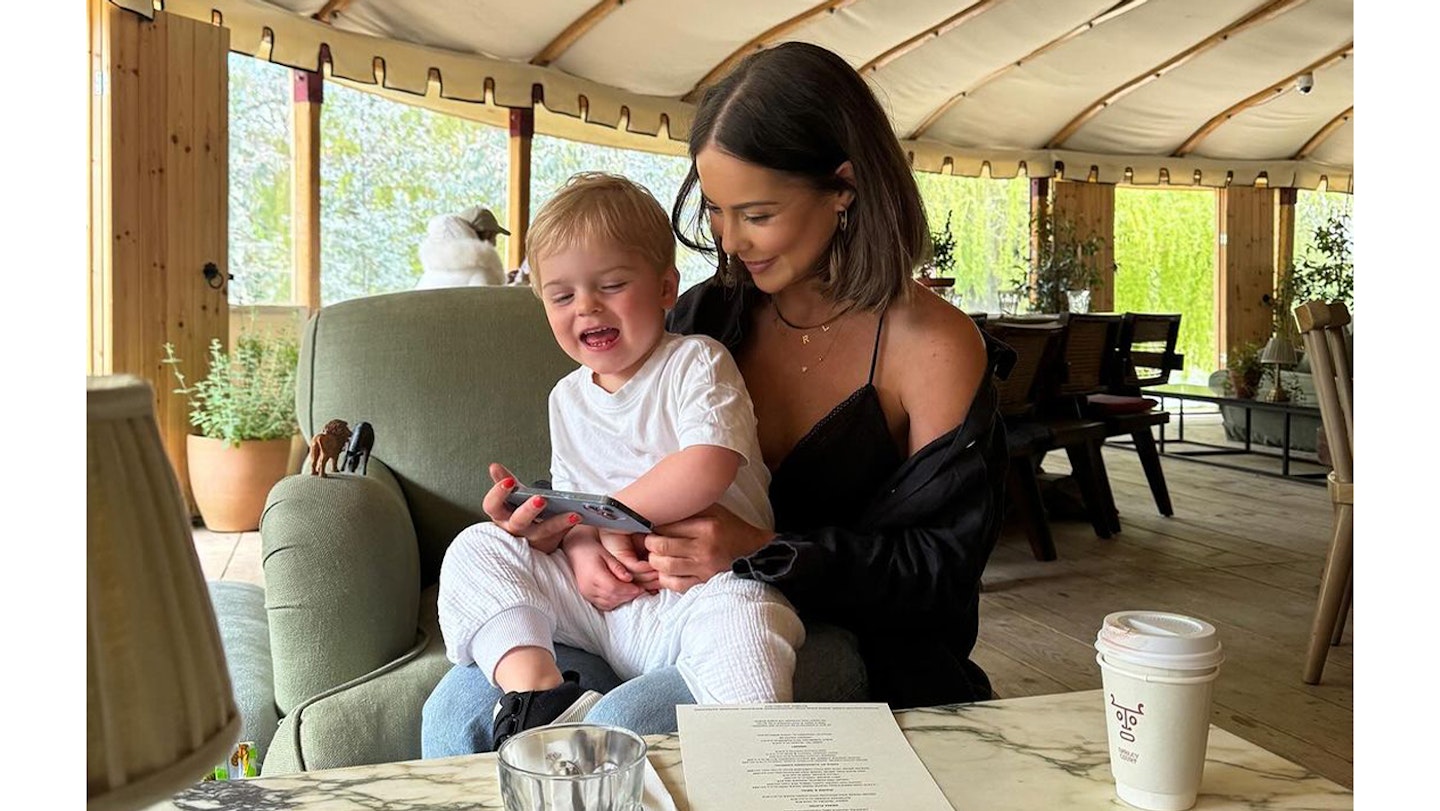Whether you remember her from her Made in Chelsea years or have come to know her more recently after following her birth recovery journey, Louise Thompson has now revealed all about everything she’s been through over the past few years leaving no stone unturned. From her devastating miscarriage to traumatic pregnancy and the birth experience that almost killed her, Louise is now ready to tell her story, in her new book, Lucky.
“I'm worried because it's so exposing” Louise says when talking to us about how she’s feeling about the book release.
1.
Lucky
 Pål Hansen
Pål HansenThe day before our interview, Louise had visited Parliament to discuss the recent Government inquiry into birth trauma in the UK. “The more conversations I'm having with women that have been through traumatic births, the more I'm realising that it's about so much more than me and my story and how I feel. It feels like a really important time for me to be shining a light on so many of the issues that are kind of ignored by our Government.”
Louise's birth experience
It was November 2021 when Louise went into labour with her baby boy Leo. A regular poster on Instagram, fans were concerned when things went silent over on her account, leaving many of her followers wondering if she was okay. On December 23, she posted for the first time since giving birth. Without giving any details as to what actually happened, it was clear Louise had been through hell. As she began to share more about her experiences, many parents took to the comments section as well as Louise’s DM’s to share their own experiences of childbirth trauma. And although these conversations were difficult for Louise to have at the time while she was in recovery, she finds connecting with mums who have been through similar experiences something she is very passionate about.
“There have been moments throughout recovery where I've had to completely remove myself from pretty much all technology. I couldn't concentrate listening to a podcast, I couldn't read an email, and I definitely couldn't read a DM that came in without being really triggered. But I was in a really sensitive place and mentally unwell when I first came out of hospital.”
Reading Louise’s book, it’s almost unfathomable to believe one person could experience such trauma in such a short space of time. From her miscarriage to the house fire during her pregnancy to her harrowing birth experience and the life-threatening illnesses that followed, it’s a miracle Louise is still here.
“Before all of this, my life had been really quite easy.” Louise admits. “I'd always been someone that was really good at communicating and talking. I couldn't imagine that I'd get to a place where I couldn't talk about something for a really long period of time.”
The changes to NHS maternity care Louise wants to see
Her trauma has not only given Louise a newfound appreciation for life, but her career is taking a diversion into her new passion of helping women going through birth trauma and working with the Government to improve both pre and postnatal care within the NHS.
"From the conversations over the last week and from my own experience, I think that there needs to be better training across the board so that people understand that a traumatic operation can cause mental health consequences afterwards.”
One particular area Louise would like to see be improved is the bedside manner and sensitivity of some health professionals.
“I had a man come up to me saying that I should be up and moving in two days following a c-section when I'd been in the hospital for several weeks because I've been put there because of what happened, not because of my choice. Of course, I'd rather be at home going shopping, but I was completely incapacitated.”
Another area all women can relate to is how seriously women’s pain levels are taken, particularly when it comes to the birth experience. “There's an expectation that all women should have an easy birth, because our bodies are designed to do it naturally. But that's not always the case for people.”
Comparing her postnatal treatment to her recent experience with her stomach issues that led to Louise having a stoma bag fitted, she found that it was managed in a much different way, with health professionals looking out for symptoms and offering more diagnostic testing afterwards.

“If I'm in significant pain following that, they take it seriously, whereas with the maternity department, they're quite quick to discharge people because there's a revolving door of people giving birth all the time.”
Louise would also like to see the mental health of birth partners considered more after witnessing their loved one experience a traumatic birth, recalling how her partner Ryan needed to be Leo’s sole parent with no access to any NHS Care.
“No one once asked him how he was.” Louise recalls. “This is something that the inquiry did highlight, that they need to make more of an effort to ask parents how they are doing, and checklist for potential PTSD symptoms, not just the baby. When the midwives come in to do those checks in the weeks following the birth, they ask about the baby, but the mother isn't really asked about.”
The main area Louise would like to see an improvement on is a mother’s choice around her birth and less resistance when it comes to those choices.
“If I had been allowed to have the c-section I wanted, and I hadn't met so much resistance, and I hadn't been backed into the corner and been made to feel like I was maybe too posh to push and that it was a silly choice, then none of this would have happened.
“I do think that mothers know our bodies best ourselves. To a large degree, there is an instinctual element, especially when it comes to childbirth. And when it comes to birth, we really need to be listened to more.”
Being aware of your birth rights
After reading Lucky and listening to Louise speak of her experience, taking a stronger stance and being aware of her birth rights is something she wishes she’d have been more knowledgeable of. “I've learned to be more assertive, but I'm not somebody that's a pushy person.” Louise says.
“Birthrights.org.uk is a great reference for what your birth rights are. It's really important to actually figure out in advance, around three months before your due date and really try and learn as much as possible. If you're not listened to, you can request to speak to somebody else. If someone doesn't want to offer you what you want, you can go to your GP and ask to be referred to a different hospital in your local area where you have the choice to choose your birth partner, to choose your hospital and to choose the team. For someone that suffers with severe anxiety, you should be offered extra support. There are things that I just had no idea about and I wish I'd known.”
Despite everything she’s been through, Louise has found the strength to turn her trauma into a mission to help other women know their rights when it comes to birth. “Don't be the person that has to learn from your mistake – learn from my mistake! There are a lot of things that I've had to learn the hard way.”
It’s fair to say Louise’s life will never be the same again, and it’s her passion when talking about the changes she would like to see in maternity care that really shines through. As well as a new podcast in the works hosted by herself and Ryan to discuss both their experiences, Louise is making it her mission to empower women in the way she desperately needed after having Leo.
“The long-term goal would be to set up a charity-funded facility like a mother and baby unit to be a safe place where people could get immediate help following a complicated birth, where they can find psychiatric support, psychological support, in a nice place for people to go.”
Building a bond with Leo

Perhaps the most raw and honest parts of Louise’s book is her account of bonding with Leo, and how long it took her to get to the point where she and Leo are best friends, something many mums and dads can relate to.
“We're not all naturally good parents and without any experience of parenting, there's an expectation that you are supposed to love and adore this child that is presented to you the moment they come out of you. But actually, I don't think it's that natural to instantly fall in love with someone without knowing what they look like, without actually getting to know them.”
Not only did Louise have to recover physically from her ordeal, which saw her in hospital for most of Leo’s early months, but it was the mental recovery which took the longest time, and that bond with Leo didn’t grow until much later. Louise’s message for mums feeling the same difficulties when it comes to bonding with your baby? Patience, and knowing that soon, with plenty of hugs, the love will come.
“Hopefully I just provide people with reassurance. I know, I felt like I did love my son around the six month mark, and then I looked back at the eight month mark at the six month photos and I’d think ‘no, I really wasn't a good parent then’ I was still quite out of it, I was exhausted, I was disassociated and I wasn't really connecting with him or looking into his eyes. But, in the moments when I felt good, I would put in as much effort as possible.”
And now? “We have a great, great life.” Louise smiles.
With everything Louise’s body has been through the past few years, it’s unsurprising that doctors have strongly advised against her carrying any more children in the future, prompting Louise to consider other options such as egg freezing or surrogacy further down the line. However, she admits that just being alive is something she is so grateful for, and getting her physical and mental health back on track is her main priority right now, as well as enjoying life with little Leo and her partner Ryan.
“Mentally, I would never be able to go through that, again. My partner has said categorically, he could not allow me to do that again.” Louise explains. “I do have ovaries, so I was considering freezing eggs in April of this year. But then obviously, I've been in hospital having another surgery. Our only option really, to have a baby that carries our genes would be through surrogacy.”
“It would be an amazing privilege to have a second child, for Leo to have a sibling.”
Lucky: Learning to Live Again by Louise Thompson is out 23rd May (Ebury Spotlight, £22)
Lorna White is the Senior Digital Writer for Mother&Baby. After running the Yours magazine website, specialising in content about caring for kids and grandchildren, Lorna brought her expertise to Mother&Baby in 2020. She has a keen interest in a range of topics from potty training and nutrition to baby names and early development and has a wide range of experienced medical experts and professionals at her fingertips. In her spare time, she enjoys spending time with her two young sisters, dog walking and enjoying the outdoors with her family.
